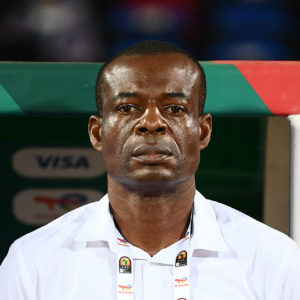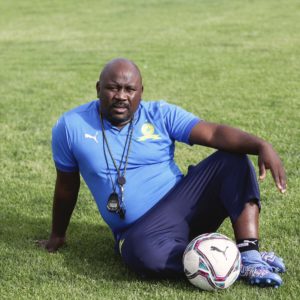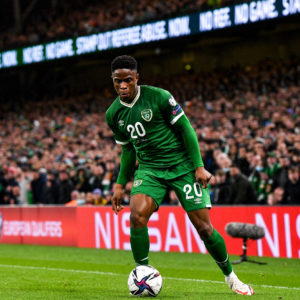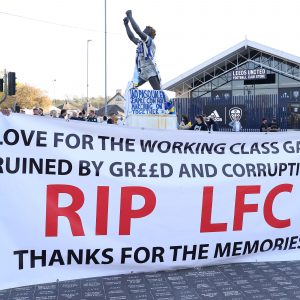Seyi Olofinjana paves the way
After a playing career that took him from Nigeria to England via Norway, the former Super Eagle figured out the job and now earns his stripes as a football sporting director in Switzerland.
Author:
22 March 2022
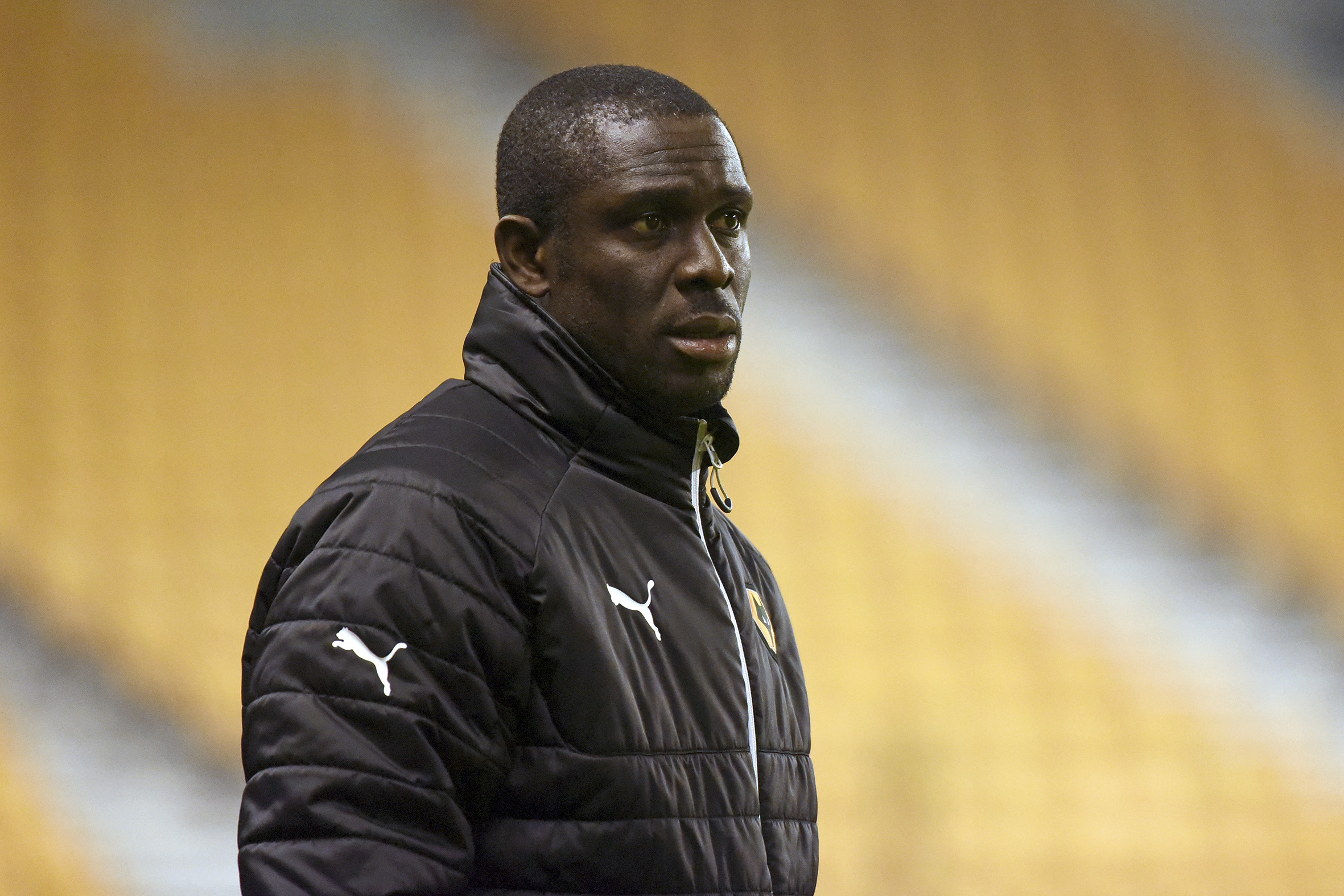
Seyi Olofinjana is walking a path that few before him have walked, and in doing so is challenging the narrative around Africans in European football. In hindsight, the former Nigeria international always seemed the type to transition to a role in football following his playing career.
His teammates remember him as a thoughtful figure, an understated and hard-working presence on the pitch and a studious individual off it. “He always wanted to learn,” occasional international roommate George Abbey recalls. “You would see him studying, always. Very quiet but very observant. He would observe and he would watch different videos and stuff. He’d also listen to the coaches attentively at all times.”
These qualities seemed likely to translate into a coaching career. But since retiring as a player in 2015, Olofinjana has had his eye on the administrative side of the game. He got a master’s degree in sporting directorship, was the loans pathway manager at English Premier League club Wolverhampton Wanderers and has been the sporting director at Swiss club Grasshoppers since May 2021.
Related article:
It is a unique position. Not since Michael Emenalo, who held directorial roles at Chelsea and Monaco between 2011 and 2019, has an African held an administrative role of that seniority in European football. Like Olofinjana, Emenalo represented Nigeria at international level, albeit with the benefit of playing at a World Cup as part of Nigeria’s vaunted “golden generation” in 1994.
Decorated playing careers aside, the two men also share a thirst for education. “I got the best of grounding, the best of education,” Olofinjana says.
But it was not always clear to him that he would take this path. It was not even clear that he would remain in football after retiring.
A clear goal
“While I was playing, the view was always to leave the football environment and go into the oil industry,” says Olofinjana. “I had done a chemical engineering degree, followed by a master’s degree in project management. Nigeria is blessed with oil, so why not go back and try to see how I can put my weight against the best out there?
“But there’s something about football that keeps bringing you back to the beautiful game. I had been running another football academy of mine for over 12 years, giving back to society from a corporate social responsibility viewpoint, and I thought why would I then throw football away?”
Olofinjana didn’t want to be a coach as “one thing I didn’t enjoy from my playing days is being famous. Being a coach throws you out there. You’re under pressure. I’m not scared of the pressure, it’s the fame and all that comes with it.” So he became a sporting director. “It was a deliberate attempt to challenge myself and see how far I can go with regard to leadership. But then I had to ask myself what does a sporting director do, and what do I need to do that job?”
A sporting director’s responsibilities include staff recruitment, succession planning, the mapping of philosophies, ideation and administration. “Basically, to be the bridge between the hierarchy of the football club and the operational side of it.” Managers come with their own ideas, he says, which they take with them when they leave or get sacked. But with a sporting director in place, the philosophy stays the same and the club recruits a new manager who doesn’t “break the chain”.
Related article:
Olofinjana needed new skills to thrive. “Aspirations are important, but how do you then begin to get the pedigree, the credibility, especially the expertise you need to do the job?”
He went to Wolves and asked, “What are the pathways?” He spoke to other sporting directors and began putting the pieces together by “learning, travelling, seeing things, seeing how people work”. He did some coaching because “to lead people, you need to have an idea of what their job looks like”. He delved into recruitment, working as a loans manager at one point because it gave him the chance to speak to agents and negotiate contracts.
“I got a very good education from Wolverhampton Wanderers, a club I’m indebted to for the opportunity they gave me. I was able to work through every department. People helped me, even the new owners, Fosun Group. But I was clear from the first day: the goal was always to be a sporting director.”
Change is a process
Olofinjana is under no illusion that it would be this straightforward for everyone. Black representation is clearly lacking in European football and he is an exception to the rule. But his attitude to challenging the status quo is to be prepared for opportunities, however few they may be.
“First and foremost, educate yourself. The only thing you can do is control the controllables. Whatever happens on the back of that you can’t control.”
He knows of a few people who have got the job and failed because they thought being a former player was enough of a qualification. It is “a recipe for disaster” if you’re “not prepared, have not done a degree, have not subjected yourself to learning” because then you don’t know what the job entails.
“But for what it’s worth, I think that trend will change. There are so many of ours, not just African kids but footballers generally, combining education with sports. It’s the way to go. Will racism go away? I doubt it. It can get better, but it’s going nowhere.”
Related article:
Knowing this, Olofinjana’s success in Switzerland becomes all the more significant.
With 27 league titles, Grasshoppers are the country’s most successful club. But they have fallen on difficult times; their last championship came 19 years ago. The appointment of Olofinjana – who despite the club’s ownership link with Wolves had to come through three interviews and see off competition from a number of candidates – is part of Grasshoppers’ plan to return to the glory days of the 1990s, when they won five league titles.
“It’s a process,” he says. “That was my first message when I took the job. It’s going to take some time. Making a change to any organisation requires time. You need to change people’s minds, you need to get people onside, get them on board to welcome your ideas.
“What should the new Grasshopper look like? Rather than dwell on 27 titles, can we make it 30 and how can we do that? How do we begin to plot the graph? Those are the things I want to start breaking down to people. Yes, we want to leverage the history of the football club and then begin to attract better people into the organisation on the back of that. I look forward to creating a new Grasshopper.”
Honest and refreshing
The new Grasshoppers will be one where players of African descent have someone to look up to. Youngsters Kaly Sene from Senegal and Francis Momoh from Nigeria spoke of their enthusiasm and excitement at seeing someone like themselves in such an exalted position in a European club.
“It’s a positive thing to work with someone you can easily approach, a man you can speak freely and openly to about anything that bothers you,” said Sene.
“He understands you and he is very honest. He’s also played the game and can relate to some situations that sound similar to yours. And the positive aspect is that it might be a bit different with someone else, but personally I feel lucky to have him here at this club. We are all far away from home, but to see someone like the technical director on a daily basis helps greatly.”
Related article:
Momoh struggled previously on and off the pitch in Switzerland. Unable to break into the first team, the Nigerian spent time with the Grasshopper reserves and often cut a lonely figure.
“His arrival has helped me a lot football-wise and impacted my life here,” said Momoh. “In the beginning, I felt like the people at this club didn’t really understand me. It was not about the language barrier or culture shock, but the fact they had no idea what I was going through mentally. It was that difficult.
“But my first meeting with Mr Olofinjana was reassuring. His approach was very direct, open and refreshing. He told me what I needed to do, how to get better and what was expected of me. The feedback was decent because he truly wanted to help and the conversation was very helpful.”
Olofinjana is quick to credit the collective. “Yes, I played my part, but I don’t coach them every day.” That said, he is keenly aware of the importance of creating an impact and ploughing his expertise back into the system. “What I enjoy most is leaving a legacy and putting my own spin on things.”

